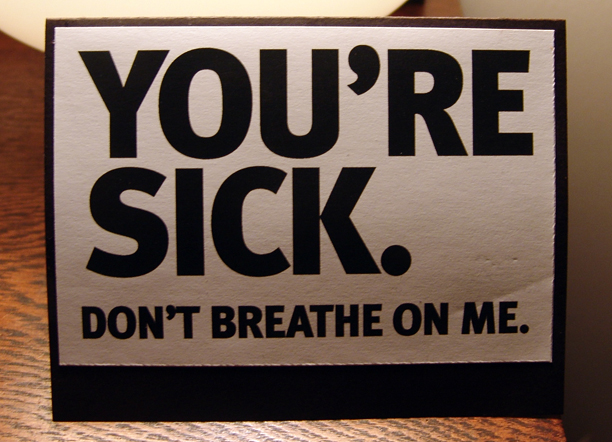Bill requires many employers to offer paid sick leave
By Jeremy Bauer-Wolf
Almost a majority of the House of Delegates is sponsoring legislation to mandate many Maryland businesses offer paid sick and safe leave policy for their employees, a move one research group estimates would cost employers $165 million.
The House Economic Matters Committee heard testimony Tuesday on the the Maryland Earned Sick and Safe Leave Act, HB 968, sponsored by Baltimore County Del. John Olszewski Jr. and 65 other Democrats. Businesses that employ 10 or more would be forced to provide one hour of paid sick leave for every 30 hours an employee works. Employees paid sick leave would cap at 56 hours per year, equaling one week of the calendar year.
Businesses with nine employees or fewer would only be required to provide an hour of unpaid leave for every 30 hours of work. Employees could cash in this sick time when either they or a family member takes ill and requires care, or if the employee is a victim of domestic or sexual assault and wants to seek mental health treatment.
Low-income workers would benefit
Proponents of the bill say that it would primarily benefit low-income workers in fields like food service, retail jobs, home-care providers — sectors that interact with the public the most, but are least likely to have the benefits, according to Melissa Broome, senior policy advocate at Job Opportunities Task Force (JOTF).
Broome, whose organization assists low-income Marylanders in finding suitable careers, said that the bill would alleviate stress placed upon household breadwinners, who in other circumstances would have to choose between caring for themselves or a sick relative or earning a paycheck.
“It’s very hard for anyone to argue that this not a reality,” she said. “This is a reality that all families are facing.”
Business groups oppose
The opposition at the hearing came from representatives of large corporations, some Maryland business owners, the Maryland Chamber of Commerce, and other industry groups, who said the bill’s language is too vague. They also argued that it would place unnecessary stress on human resources representatives and other administrators, who, as a condition of the bill, would be required to track relevant records for at least three years, or face financial penalties.
“I think generally most of our contractors give [some form] of leave,” said Sean Malone, who represents Associated Builders and Contractors, Inc.. “But having it mandated by government is a different issues, and having penalties attached to it is problematic. As drafted, we don’t support the bill, but we’ll work with anybody on legislation.”
During the hearing, the House Economic Matters Committee Chair Dereck Davis, D-Prince George’s County, recounted a personal anecdote about the time he tore his his Achilles tendon and couldn’t work.
“Occasionally people need a day off – not always a mental health day, but rather a situation such as mine. I needed surgery,” Davis said during the hearing.
Compromises made after last year’s bill withdrawn
Last year’s version of the bill was withdrawn before it came to vote, and to compromise, the 2014 bill features several concessions, Broome said, including the provision for unpaid sick leave for businesses with nine or fewer employees. Employers are also not required to grant sick leave to an employee that hasn’t been with the company more than 90 days.
According to the fiscal analysis of the bill, the Institute for Women’s Policy Research found709,400 private-sector workers do not have earned sick days in Maryland. The institute estimates it would cost Maryland employers $165 million to provide new earned sick days for employees, which is equivalent to a 24-cents-per-hour increase in wages for employees receiving the new leave.
The senate version of the bill, SB 753, sponsored by Sen. Catherine Pugh, will be in heard in the Senate Finance Committee Thursday.

MarylandReporter.com is a daily news website produced by journalists committed to making state government as open, transparent, accountable and responsive as possible – in deed, not just in promise. We believe the people who pay for this government are entitled to have their money spent in an efficient and effective way, and that they are entitled to keep as much of their hard-earned dollars as they possibly can.


